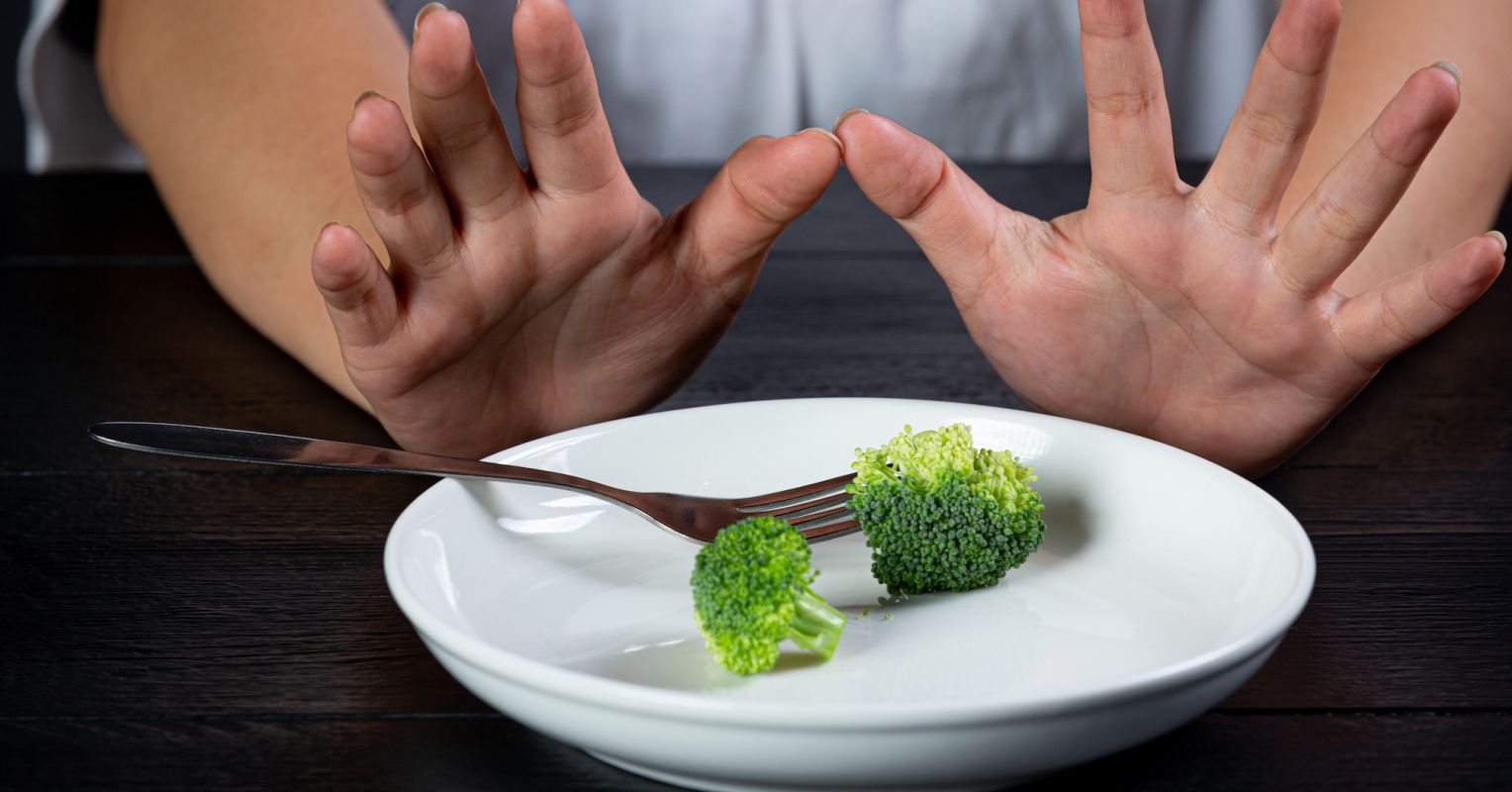Food poisoning can turn your favorite meal into your worst nightmare. Even the memory of that experience is enough to make your stomach turn. But why does that reaction stick with us so strongly? A recent study from Princeton University discovered specialized brain cells that keep track of what you eat, tagging which foods make you sick. This discovery could unlock new treatment targets for helping people feel comfortable eating foods they’ve been avoiding.
Food does not just fuel our bodies —it also impacts how we think, feel, and behave. As flavors travel from your mouth to your stomach and through your intestines, your gut sends messages to your brain about what you ate and how much of it. In turn, your brain uses chemical messengers and hormones to control your appetite and digestion. This communication superhighway is called the gut-brain axis.
When you get food poisoning, the gut-brain axis jumps into action. You may not feel it right away, but eating contaminated food triggers an immune response in the gut. The gut-brain axis responds by sending distress signals to the brain, causing you to feel sick. The effects are more than just physical. Food poisoning can also trigger anxiety, mood swings, and brain fog.
The gut-brain axis not only helps our body recover from food poisoning but also shapes how we feel after the experience.
To see how deep this connection runs, this team decided to test it out—using Kool-Aid. The study introduced a group of mice to Grape Kool-Aid, a novel flavor to them. Half of the mice were then injected with lithium chloride, a chemical that mimics the symptoms of food poisoning.
The strange thing about food poisoning is how it sticks with you, even after the physical symptoms have passed. A bad case of food poisoning can leave you with lasting anxiety or a sense of dread surrounding eating. This is not just a “gut feeling.” Food poisoning changes your relationship with food. Your brain starts associating certain foods or tastes with sickness, making you more sensitive to those triggers. This feeling can become so strong that even new foods automatically trigger anxiety.
In this study, two days passed before the mice were offered a choice between drinking the Kool-Aid again or water. Even though the animals did not physically get sick, the feeling of food poisoning was enough to cause the mice to develop an aversion to this previously tasty drink. Nearly all of them avoided the flavored drink. Only the control mice that did not receive the injection drank the Kool-Aid normally.
The team discovered that this reaction is linked to a group of cells in the brainstem called calcitonin gene-related peptide (CGRP) neurons. When you experience food poisoning, these neurons receive distress signals from the gut and alert the rest of the brain. What they found was that they directly target the amygdala, the part of the brain that processes our emotions. This is what kicks off that uneasy, sick feeling.
Since the amygdala is also involved in shaping our memories, activation of these brainstem neurons seems to link the memory of that experience with these pleasant feelings. The team tested this by using optogenetics, a technique that uses light to “turn off” specific cells. Now, after experiencing food poisoning symptoms, the mice still drink the Kool-Aid normally. They did not seem to associate its flavor with sickness like the other group.
The team speculates that the amygdala keeps track of everything we eat, how we feel, and whether it tastes good. If we get sick after eating, even hours later, calcitonin gene-related peptide neurons in the brainstem activate and “tag” those memories. The next time you encounter that food or taste again, the memory of getting sick is reactivated, causing you to feel a wave of nausea or anxiety.
Gut-Brain Axis Essential Reads
Getting food poisoning is not a memory one easily forgets. This built-in measure helps keep us safe from foods that may make us sick again. However, long-lasting food aversions can make it difficult to move past the anxiety or dread associated with certain foods.
Understanding the role that the gut-brain axis plays in forming these associations may help people overcome the lasting emotional effects of food poisoning. For those with conditions like irritable bowel syndrome, food-related anxiety disorders, and chronic nausea, it is a step toward making food enjoyable again, without the fear of getting sick.




